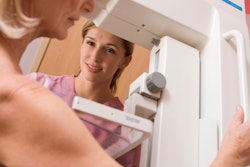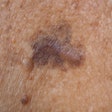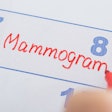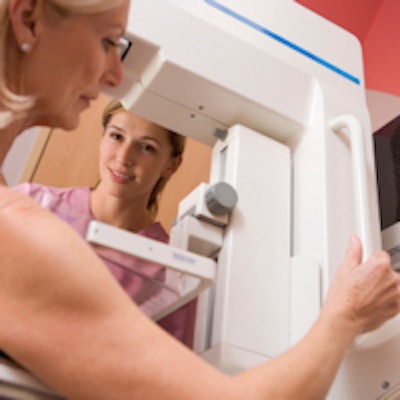
Older women appear to benefit from continued, regular mammography screening, according to a review published online in the Journal of General Internal Medicine. The finding flies in the face of recent guidance from the U.S. Preventive Services Task Force that rejects screening women older than 75.
But there are a few caveats, researchers from the University of California, San Francisco (UCSF) wrote. For breast cancer screening to confer the most benefit in older women, they must be healthy, with no serious additional disease. In addition, more evidence is needed to confirm the hypothesis.
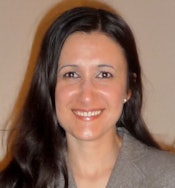 Dejana Braithwaite, PhD, from UCSF.
Dejana Braithwaite, PhD, from UCSF."There is consensus among existing studies that unless older women have other, very severe health conditions that would limit life expectancy, they may experience benefits with continued screening," lead author Dejana Braithwaite, PhD, told AuntMinnie.com. "But our study does show that the evidence remains limited, and we need more robust evidence and research to inform guidelines and clinical decisions."
Systematic review
Braithwaite and colleagues conducted a review of published studies on the topic, searching Medline and Embase for January 1980 through June 2013 for studies that examined benefits or harms of screening mammography in women 65 years or older. They reviewed more than 1,700 titles, identified seven studies that met their research criteria, and examined the studies for screening setting, design and quality, screening schedule, comorbidity measures, and estimates of benefits and/or harms (J Gen Intern Med, January 29, 2016).
Of the seven studies, two were prospective cohorts, two were retrospective cohorts, and three were decision analyses. There were no randomized controlled trials. Four of the studies examined at least one measure of life expectancy or reduction in the risk of breast cancer death as a marker of screening benefit, while three of the studies addressed the harms of screening mammography, including false-positive results, according to the researchers.
Braithwaite and colleagues determined the following:
- The cumulative 10-year probability of a false-positive mammography result was twice as high in biennially screened women between the ages of 66 and 74 as in those who were screened annually, regardless of any comorbidity.
- Ending screening at age 74 versus age 72 resulted in 96 more false-positive tests per 1,000 screening exams.
- Because rates of clinically indolent tumors and ductal carcinoma in situ (DCIS) increase with age, older women are more likely to be harmed from overdiagnosis -- that is, by detected cancers that would not become clinically apparent during a woman's life or that would not affect her overall survival.
- One study showed that, on average, 10.7 years were required before one death from breast cancer was prevented per 1,000 women screened, which supports the idea that screening should target women with a life expectancy greater than 10 years.
Yes or no?
So what's the bottom line? Regular breast cancer screening appears to be beneficial for healthy older women. But the benefits aren't dramatic.
"The limited evidence currently available suggests that, apart from the oldest women and those with severe comorbidity, women aged 65 and older may experience a slight increase in life expectancy from screening," the authors wrote. "Given the potential for harm, it is unclear whether the magnitude of the benefit is sufficient to warrant regular screening. Women, clinicians, and policymakers should consider these factors in deciding whether to continue screening."
Because it's unlikely that a randomized controlled trial of screening mammography in older women will be conducted, what's needed is more observational research that will investigate effective ways to measure women's life expectancy to address the question of when women should stop regular screening.
"We need to think carefully about how to individualize screening decisions based on women's overall health and age," Braithwaite told AuntMinnie.com. "And we need better tools to enable clinicians and patients to predict women's life expectancy and therefore help make informed decisions about screening."





